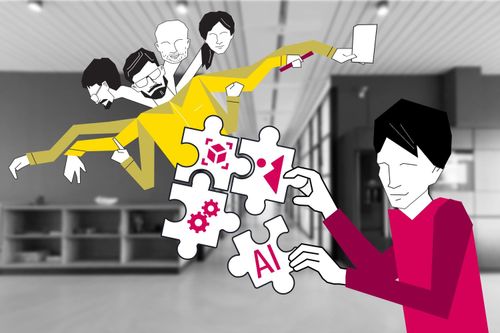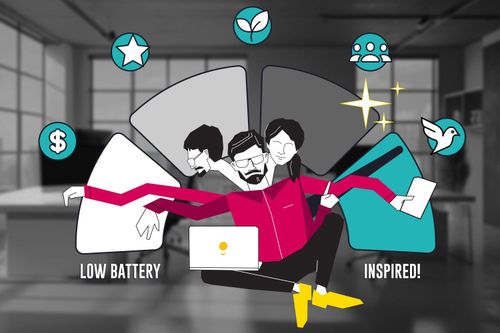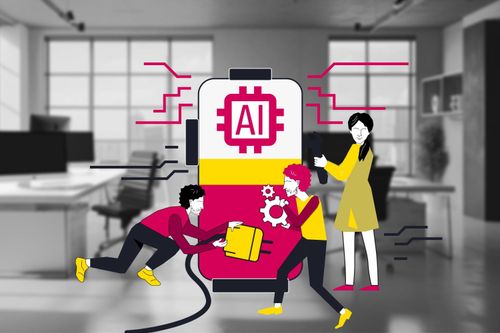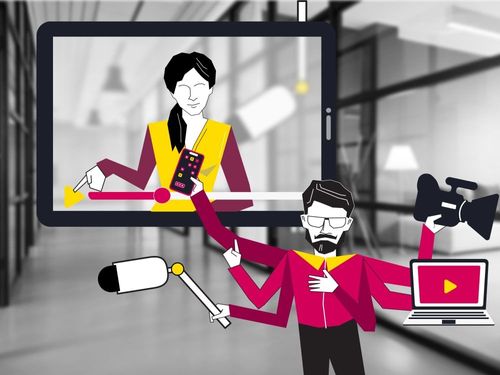
“The future is already here — it’s just not evenly distributed.” — William Gibson
For years, browsers have been the quiet workhorses of the Internet. The tools you didn’t even think about. Something big is happening.
If you’ll hear that Google Chrome has 72% of users (Statcounter), you can probably think that it has already won the race. But no, it's not. The real race is just beginning. It's no longer about speed or extensions; it's all about AI.
Now is the era of AI browsers, where your tabs don’t just display information; they understand what you need and act on it.
From Browsing to Doing: The AI Copilot is Here
These aren’t experimental tools anymore. AI browsers are going mainstream — fast:
- Brave has over 100 million monthly active users, with Leo, a privacy-first AI assistant.
- Opera embedded AI into nearly every layer of its product for more than 290 M+ users.
- Perplexity Comet crossed $150 million ARR and is valued at $20 billion.
This isn’t “add-a-chatbot” territory anymore. The browser becomes the engine that powers your day.
The Bigger Picture: Why It Matters
The AI browser is not just for techies. It’s a strategic tool for product owners, CEO, CTOs, and founders.
If your browser can:
- Summarize CRM data,
- Draft reports,
- Fill out forms automatically,
- Analyze docs without switching tools…
You’ll spend less time inside SaaS tools — and more time inside a single smart tab.
Smartexe helps tech companies explore this space. Our teams worked on live event streaming platforms and multi-user co-watching apps, enabling real-time video scaling and synchronized interactions. This is where AI-powered browsing meets real-world collaboration.
Here's where it gets a bit scary.
What About Data Privacy?
According to a recent report, 77% of employees share sensitive company data with ChatGPT and similar tools. We’ve already seen Google's history used as courtroom evidence. What happens when AI assistants remember everything?
Some browsers — such as Dia or Sigma AI Browser — now emphasize local encryption and user-controlled memory. Others? Still murky.
In 2026, that will be a dealbreaker.
Will ChatGPT Atlas be a game-changer or just hype like Clubhouse?
The biggest splash came from ChatGPT Atlas, unveiled on October 21, 2025. Atlas is built on the Chromium engine and puts ChatGPT at the center of the experience.requiring
The Atlas sidebar can summarize, compare, analyze, and even prepare actions. The “Agent Mode” allows completing multiple tasks across different tools and using browser memories to choose sensible actions.
Atlas is currently macOS-only. Windows version rollout is likely to be expected in Q1-Q2 2026. The delay caused a higher user base, requirements for more enterprise and hardware testing.
Mobile (iOS/Android) is likely to be expected by 2026. Mobile UI/agent integration requires extra complexity (smaller screens, different OS constraints, permission models).
Pricing expectations:
- Free version with core browsing & ChatGPT integration;
- Premium tier (Agent Mode) tied to ChatGPT Plus/Pro;
- Enterprise tier for business use (history control, admin console).
Top 10 AI Browsers Compared (2026 Preview)
Browser | Core idea | Best for | Stand-out strengths | Notable limitations / risks |
|---|---|---|---|---|
| ChatGPT Atlas (OpenAI) | ChatGPT-first browser | Productivity seekers | Deep model integration; instant page summaries/comparisons; strong developer cadence | macOS-only; privacy/memory settings need careful tuning; agent features early |
| Perplexity Comet | Agentic browser that “does” tasks (research, shopping, email triage) | Power users | Background assistant; strong Q&A pedigree; now free; fast “plan-and-act” flows | Security scrutiny (prompt-injection/“CometJacking” incidents, since patched) |
| Microsoft Edge (Copilot Mode) | Enterprise AI browsing | Corporate users | Policy controls; on-device features (e.g., typo-tolerant history); | Windows distribution Heavier footprint; org rollouts need admin comfort with data flow |
| Opera (Aria / Neon) | Consumer + power-user mix | Multidevice fans | Zero-cost Aria across desktop/mobile; Neon Do executes tasks locally; “Tasks/Cards” workflow | Neon early-access, subscription; premium upsell model evolving |
| Brave (Leo) | Privacy-first assistant (multiple models; no account required) | Data-conscious users | Local-friendly posture, no training on chats; PDF/Docs analysis; model choice | Fewer “agentic” automations |
| Arc / Arc Search / Dia (The Browser Company) | AI-first rethink | Mobile-first users | Mobile “Browse for Me”, summarization; bold UX; Dia aims for command-driven actions | Arc feature development wound down; security events in past; Dia still emerging |
| Google Chrome (Gemini features) | Gemini-powered assistance inside Chrome surfaces | Mass users | Ubiquity, web-scale integration; multi-tab help | AI features still rolling out; privacy defaults under watch |
| Sigma AI Browser | Lightweight AI‑assistant browser | Creators, marketers, startup teams | Focus on assistant features and minimal UI. | Less web‑session autonomy; limited site‑browsing/agent features. |
| Browserbase | Infrastructure & browser platform for AI agents (headless browsers) | Developers / AI startups | Scalable browser sessions, agent frameworks (Stagehand) built‑in; 10× cheaper than full VM stacks. | Requiring technical expertise for setup and use |
| Poly | AI‑powered cloud file browser & workspace with generative search | Creatives / remote teams | Natural‑language search across documents/images, intelligent previews, collaboration‑focused. | Niche focus on file management |
The AI browser users can’t stop talking about the time they’re saving. The way AI browsers understand context feels almost… effortless. Here’s the flip side: privacy.
While some players like Dia and Sigma AI Browser put local encryption front and center, others are fuzzy on what really happens to your data. And in 2026, that’s a dealbreaker.
Agentic Browsing Becomes the Norm
The browsers won’t just help you search — they’ll plan and act.
- Local-First Execution
Privacy is becoming a feature, not a footnote. Your browser will process more right on your device. - Transparent Memory and Control
Users will soon decide what their browser remembers and what it forgets. This will reshape how people delegate work to AI. - Safer Agent Ecosystems
Early prompt-injection incidents have shown the risks of autonomous actions. The next wave of AI browsers will bring sandboxed actions, allowlists, and auditable logs — protecting users and publishers alike. - New Monetization Models
Ad revenue alone won’t keep the lights on. Expect hybrid models: paid AI tiers, per-action monetization, and revenue-sharing with publishers. ChatGPT Atlas, Opera, and Perplexity Comet are already testing the waters.
Why This Matters for Businesses
The browser — once invisible infrastructure — is becoming a strategic battleground. AI browsers aren’t just changing how people search. They’re changing how work gets done.
For businesses, that means:
- Faster research and data workflows.
- Leaner operations with task automation.
- New distribution and ad channels embedded into browsing itself.
The next productivity leap may not come from installing another SaaS tool — but from opening a smarter browser tab.
“The best way to predict the future is to invent it.” — Alan Kay
The AI browser revolution isn’t on the horizon. It’s already loading in the sidebar
What would you want your browser to automate for you?



















